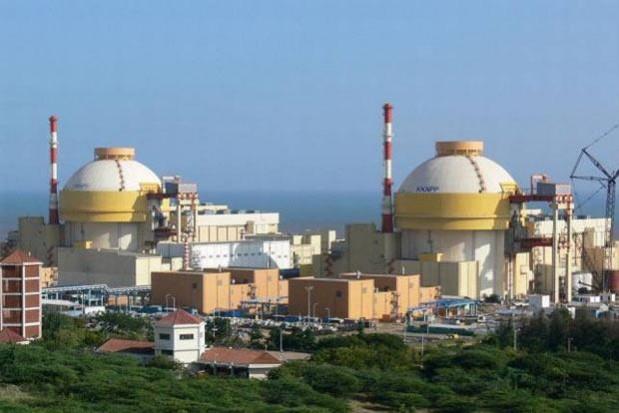The Kudankulam Nuclear Power Plant (KNPP) has always been embroiled in controversy and several social and political struggles have taken place in the power plant which finally commenced generating power into the Southern Grid from October 22, 2013. The plant, which has an installed capacity of 6000 MW from its 6 units now has two units under operation generating 2000 MW.
Russian state company Atomstroyexport has joined hands with the Nuclear Power Corporation of India Ltd (NPCIL) for the Kudankulam Nuclear Power Project. The construction of Units 3 and 4 was commissioned in 2016 and will start generating power from 2023. This would add up to 2000 MW more power into the grid.

Recently a controversy erupted in Tirunelveli district and adjacent areas of the plant after NPCIL floated tenders for the construction of an Away from Reactor (AFR) for the storage of Spent Nuclear Fuel (SNF). With the proposed facility planned to be situated near the power plant, activists and environmentalists have raised concerns, citing a possible threat to the local population.
The issue gained prominence after Tamil Nadu Chief Minister M.K. Stalin aired his opposition to the project and flagged a letter to Prime Minister Narendra Modi expressing the concerns of the people of Tamil Nadu over installing the AFR there.
Stalin in the letter to the Prime Minister expressed his opposition to the project on behalf of the people of Tamil Nadu and as an alternative suggested that the SNF be transported back to Russia or be stored in a Deep Geological Repository (DGR) in an uninhabited and ecologically non-sensitive area.

In the letter Stalin said, "I request that in the interest of public safety, health and welfare of the people of Tamil Nadu, action may be taken to take the SNF back to Russia. This must not only be for Unit 1 and Unit 2 but also for the subsequent four units. In case this is not a feasible option, the spent fuel may be permanently stored in a Deep Geological Repository in an uninhabited and ecologically non-sensitive area."
Stalin pointed out that several such facilities across the world have faced accidents leading to a disastrous impact on the environment and the people residing in and around such plants.
Former Tamil Nadu Chief Minister O. Panneerselvam has also come out strongly against the construction of the Away from Reactor and asked Stalin to ensure that AFRs are not constructed at Kudankulam. He said that Unit 1 and Unit 2 of the plant were generating power which was shared with other south Indian states like Kerala, Karnataka, Andhra Pradesh, and Puducherry but the Spent Nuclear Fuel has become the liability of only Tamil Nadu. OPS said that if the AFR was constructed at Kudankulam other state governments would also dump their nuclear waste here.
He called upon the Tamil Nadu government to stop the tendering process initiated by the NPCIL. He added that the last day of the tender was February 24 and urged the government to act on it immediately.
What the anti-Kundankulam activists say
Other than the political leadership, social and environmental activists are also opposing the project.
G. Sundarrajan, an anti-Kudankulam activist and General Secretary of Poovulagin Nanbargal, an organization taking up environmental issues, told IANS, "The state government must take the initiative and not allow NPCIL to build an AFR facility and withhold the Consent to Establish (CTE) issued by the Tamil Nadu Pollution Control Board for the under-construction units 3 and 4 at the KNPP."
He said that the AFR becoming a permanent structure can pose serious issues for the local population as no decision on a Deep Geological Repository has been taken. He added, "The Supreme Court had directed the authorities to build the DGR at the earliest so that the spent fuel could be stored there."
The NPCIL had earlier told the Supreme Court that a DGR would be constructed within five years by 2018. Later, five more years were sought and that period will also end by 2023 but the construction of the DGR has not taken place.
However, the Indian government has adopted a Closed Fuel Cycle' where spent fuel is considered as a material of resource. Union Minister for Science and Technology Jitendra Singh recently told the Lok Sabha on a question by DMK leader T.R. Baalu that, "The India-Russia Inter-Governmental Agreement of 2010 facilitates storage and reprocessing of spent nuclear fuel generated at KNPP and given the small quantity of high-level waste generated post reprocessing, there is no need for a deep underground geological disposal facility in the near future."
The minister has also said that the AFRs are designed to withstand extreme natural events like earthquakes and tsunamis and there was no need for any apprehension.















